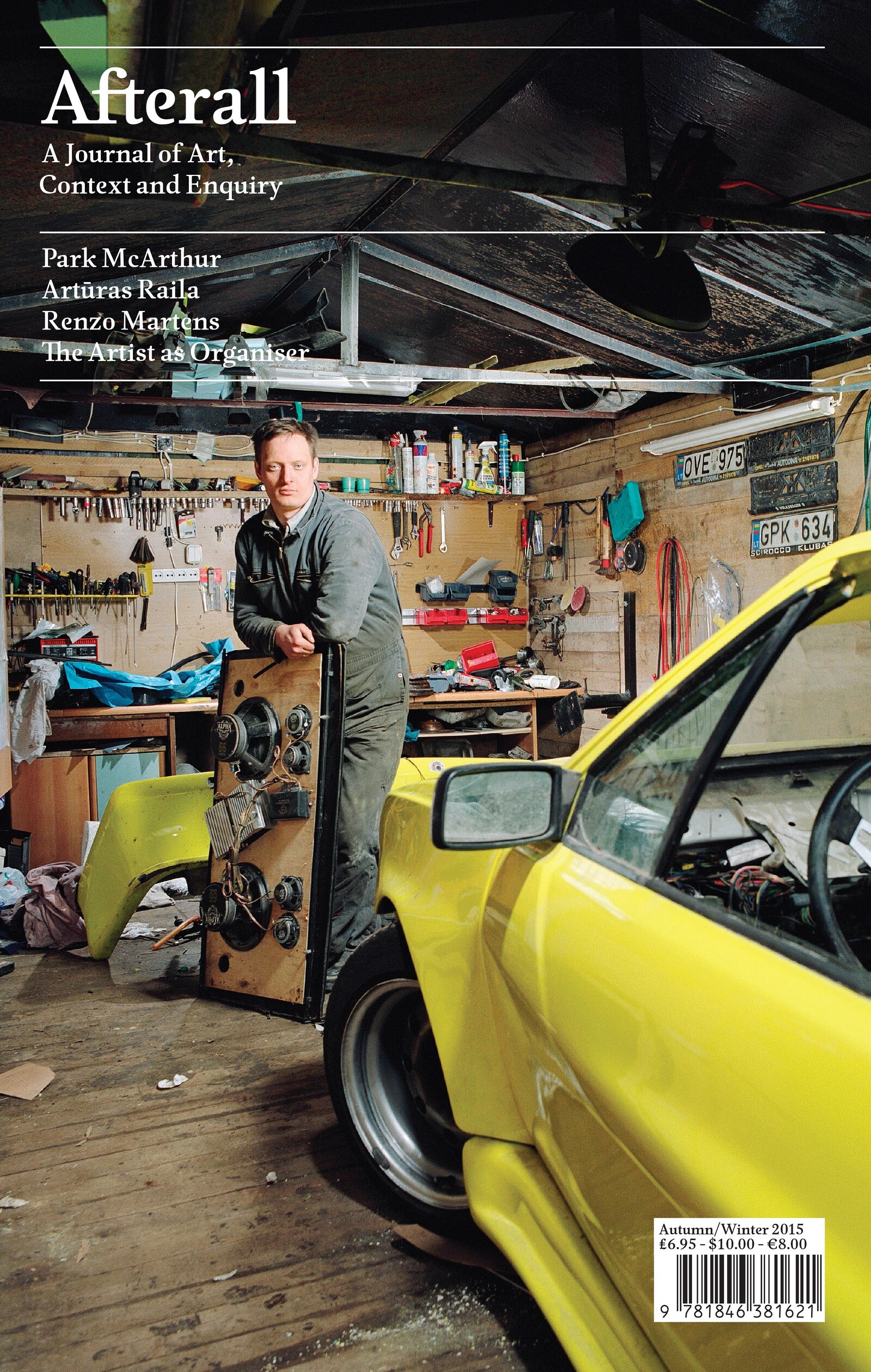Artūras Raila, Park McArthur, Renzo Martens, Andrzej Wróblewski, Lav Diaz, Sven Lütticken and Ekaterina Degot on artists’ organisations, Francesca Recchia on dOCUMENTA (13) in Kabul, Andrew Stefan Weiner on the legacies of pan-Arabism
Afterall is pleased to present issue 40, autumn/winter 2015, which looks at the organisational turn in socially engaged art in relation to wider social and political developments—from the crisis of the welfare state to mass migration.
Sven Lütticken’s and Ekaterina Degot’s essays sketch the backdrop to this institutional impulse, presenting artists’ organisations as a shift away from past strategies of transgression and critique. Foregrounding the use of technology within artist-run social initiatives, Lütticken reads forms of social assemblage as a means of intervening in the dialectics of visibility of our times. Meanwhile, in her report on the conference “Artist Organisations International” held earlier this year in Berlin, Degot sees the turn towards institutional activism as aligning artists with the state. A polemical case in point is Renzo Martens’s Institute of Human Activities, whose “gentrification programme” in the Democratic Republic of the Congo is here unpacked by T.J. Demos.
Striking alliances with various social and political outcasts—from extremist groups to dowsers—Artūras Raila’s projects push museums and viewers beyond their comfort zone. As described by Travis Jeppesen and Lolita Jablonskienė, however, his idiosyncratic social sculptures stop short of collective utopianism, instead deploying naïvety to interrogate consensual definitions of reality. Concerned with how bodies are physically and politically constituted, Park McArthur’s sculptures, here examined by Andrew Blackley, reflect on notions of scale, access and care to tackle the processes of exclusion at play within and beyond art institutions. The tension between abstract social structures and embodied struggles resonates in the films of Lav Diaz, which May Adadol Ingawanij discusses in terms of “physical realism.”
Degot argues that the post-communist horizon casts a long shadow on recent art, and indeed overlapping and contrasting post-War imaginaries haunt this issue of Afterall. According to Tom McDonough, Andrzej Wróblewski’s double-sided paintings from the late 1940s and ’50s offer a dialectical model to understand the competing demands placed upon artists during the Cold War, and their enduring influence. Assessing recent artistic engagements with the legacy of post-War pan-Arabism, Andrew Stefan Weiner coins the term “archival activism” to refer to practices that unearth marginalised histories to mobilise political subjects. Finally, returning to the spectre of current crises, Francesca Recchia revisits dOCUMENTA (13)’s programme in Kabul, seeing it as symptomatic of the “frontier mentality” underpinning today’s art system.
This autumn Afterall Books launches the sixth publication in its “Exhibition Histories” series, Cultural Anthropophagy: The 24th Bienal de São Paulo 1998, and the “One Work” title Lee Friedlander: The Little Screens by Saul Anton. The next guests in our “Exhibition Histories” talks series, co-organised with the Whitechapel Gallery, London, are curator and writer Rasha Salti, who will discuss The International Art Exhibition for Palestine (1978) with Omar Kholeif on December 10, and artist Lubaina Himid, who will speak about three exhibitions she curated in London in the 1980s on March 3, 2016.
Afterall journal is published by Central Saint Martins, London, in editorial partnership with MHKA, Antwerp, and in association with the University of Chicago Press.
To subscribe to Afterall journal, please click here.
Afterall is now available as an e-book edition. If you are already a subscriber, you can download it here. Otherwise, you can purchase single issues here.


